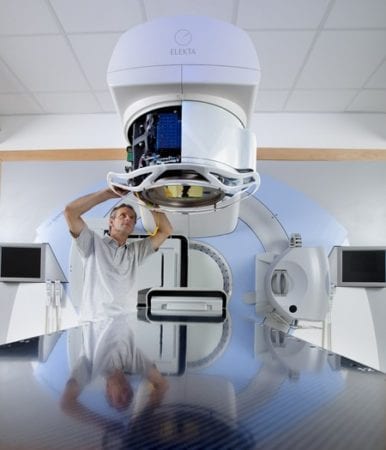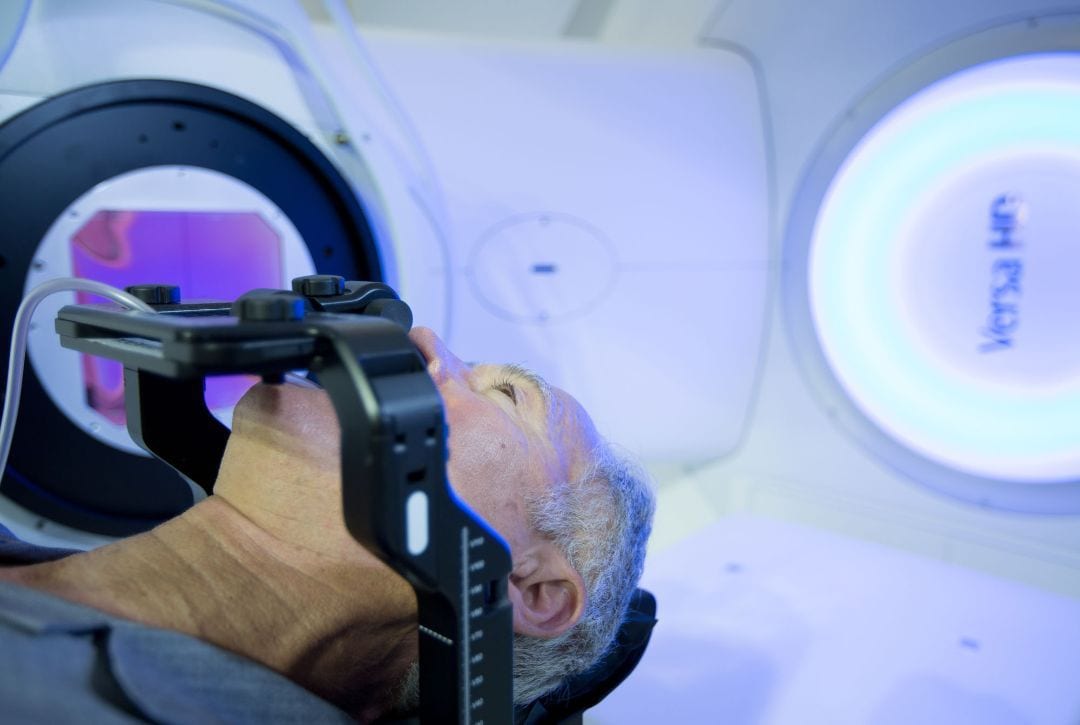How the IoT and centralized field service are helping radiation therapy company Elekta slash downtime for vital cancer treatment systems
Editor’s note: This story first appeared in the latest issue of Field Service, a quarterly print magazine from Field Service Digital and ServiceMax. Check out the full magazine in print or online.
Medical device manufacturer Elekta is bringing its state-of-the-art machines online to treat the world’s biggest killer — cancer.
In the process, Elekta is changing from a technology-focused company to a more service-oriented firm. Product R&D, customer relationships and sales are now increasingly viewed through the lens of service.
Elekta’s highly complex machines for treating cancer and brain disorders are used in more than 5,000 hospitals worldwide. As an early adopter of ServiceMax’s Connected Field Service, Elekta is using IoT-connected devices to deliver more proactive and predictive maintenance for customers.
Intervening Before a Machine Fails
A number of failure “use cases” are now regularly used for predictive maintenance. When a possible problem is signaled, Elekta, headquartered in Stockholm, Sweden, is able to step in and schedule system time with the customer before a failure occurs.
This pre-emptive intervention has cut customer downtime, associated with complex vacuum system problems, by as much as 80 percent. Spare part costs are reduced by 50 percent and labor hours by 60 percent.
Although the machine would still be out of action for corrective maintenance, it could be scheduled at a convenient time rather than the customer experiencing an unscheduled interruption during clinical hours.

“Today we’ve got technicians who are monitoring the machines through our remote services application, identifying potential problems and initiating technician visits through ServiceMax,” says Martin Gilday, senior vice president of global service at Elekta. “With Connected Field Service, we will be able to automate the full process such that the machines themselves will detect the potential problem, and raise a case in ServiceMax for engineer intervention.”
The Shift to a Service-Centric Model
When Elekta first adopted the ServiceMax platform about four years ago, it did not have a centrally managed global service function. Instead, service was delivered regionally and the service management system was configured in different ways.
“That resulted in a somewhat over-engineered solution,” acknowledges Gilday.
It all changed when Elekta established a “global service delivery model,” including centralized support, as part of the new global service function. The move had a profound effect, according to Gilday.
“Prior to that change, customers would contact an engineer directly to register they had a problem and request assistance. But we switched to a centralized support model with a customer help desk (the Elekta Care Support Center), and customers now call into the support center for all service requests.”
Having a centralized support model meant that Elekta was able to accelerate its utilization of remote services. Today, about a quarter of customer incidents can be solved remotely without an onsite visit. The key? Data from connected devices.
A Proactive Strategy
Over the last three years, the number of connected radiation machines has risen from just below 50 percent to 80 percent, a “significant milestone,” according to Gilday.
“Prior to that, we would have been more focused on getting an engineer to site and response times,” he says. “Once you’ve got a majority connected installed base, your service strategy can be more proactive and predictive.”
Creating additional use cases for predictive maintenance requires a close relationship with R&D, as service becomes part of the product creation process and market performance data can be fed back into R&D to enhance future designs.
There are currently about 20 use cases being developed with R&D, all of which will advance the development of predictive maintenance.
“This smart maintenance approach is now really beginning to deliver some significant benefits both for our customers, with regard to increased system availability, and for Elekta in terms of more efficient and cost effective service delivery,” Gilday says.
Learn more about Elekta’s story here.


Share this: